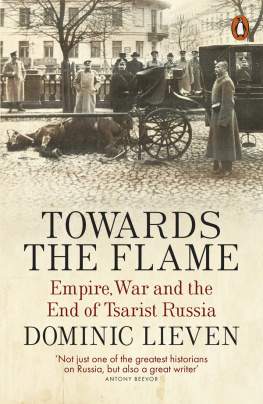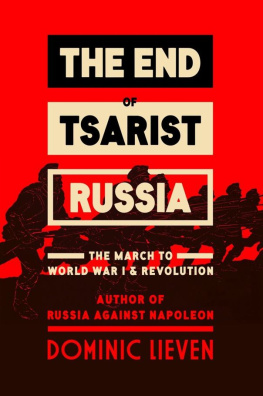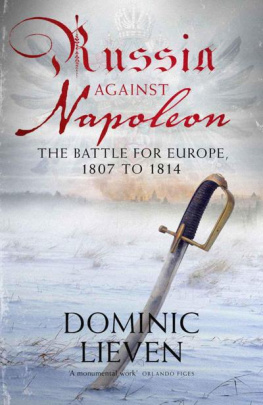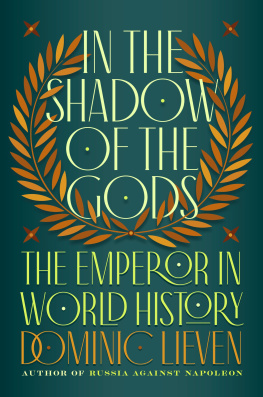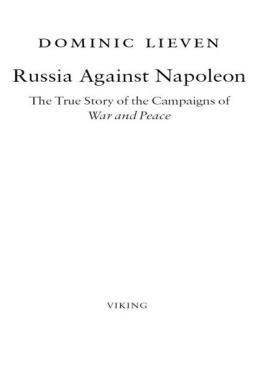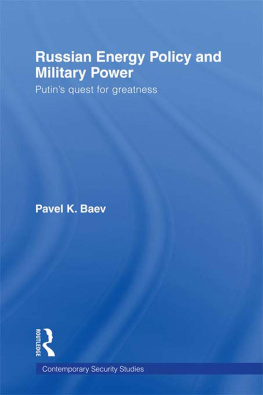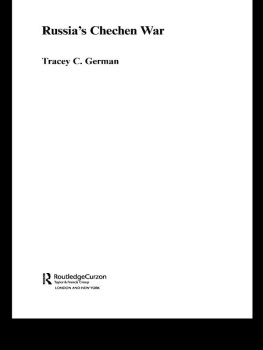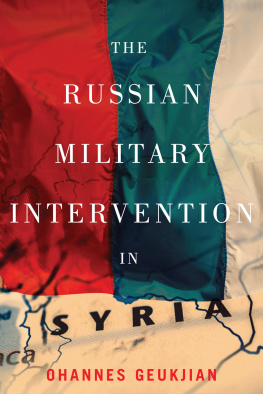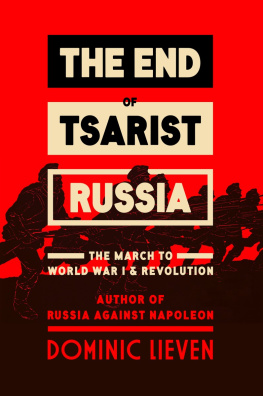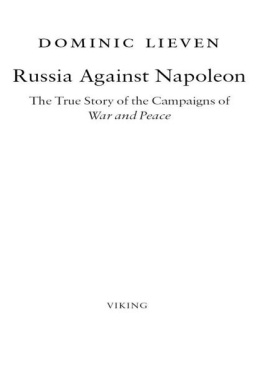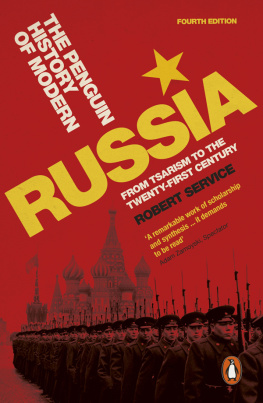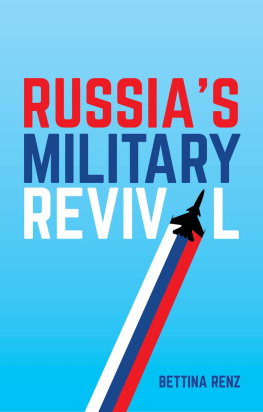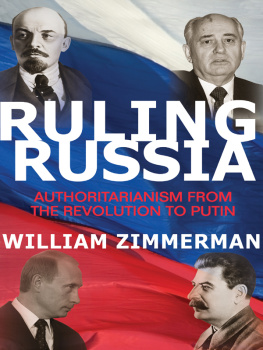Contents
Dominic Lieven
TOWARDS THE FLAME
Empire, War and the End of Tsarist Russia
PENGUIN BOOKS
UK | USA | Canada | Ireland | Australia
India | New Zealand | South Africa
Penguin Books is part of the Penguin Random House group of companies whose addresses can be found at global.penguinrandomhouse.com.
First published in the United States of America by Viking, part of Penguin Group (USA) LLC 2015
First published in Great Britain by Allen Lane 2015
Published in Penguin Books 2016
Text copyright Dominic Lieven, 2015
Front cover: Act of terrorism on the Ekaterininskii Canal in St Petersburg, 1906, by Karl Bulla. From the album Chronicle of St. Petersburg in the Saltykov-Schedrin State Public Library, The National Library of Russia
The moral right of the author has been asserted
ISBN: 978-1-846-14382-3
THE BEGINNING
Let the conversation begin...
Follow the Penguin Twitter.com@penguinukbooks
Keep up-to-date with all our stories YouTube.com/penguinbooks
Pin Penguin Books to your Pinterest
Like Penguin Books on Facebook.com/penguinbooks
Listen to Penguin at SoundCloud.com/penguin-books
Find out more about the author and
discover more stories like this at Penguin.co.uk
ABOUT THE AUTHOR
Dominic Lieven is a Senior Research Fellow of Trinity College, Cambridge University, and a Fellow of the British Academy. His book Russia Against Napoleon (Penguin) won the Wolfson Prize for History and the Prize of the Fondation Napoleon for the best foreign work on the Napoleonic era.
PENGUIN BOOKS
TOWARDS THE FLAME
A book of immense scholarship and engaging readability. Through an eastern window rarely opened to Western gaze, it illuminates the end of Europes old order and the explosive start of the twentieth century David Reynolds, author of The Long Shadow:The Great War and the Twentieth Century
Lieven has a double gift: first, for harvesting details to convey the essence of an era and, second, for finding new, startling, and clarifying elements in familiar stories. This is history with a heartbeat, and it could not be more engrossing Robert Legvold, Foreign Affairs
Lieven presents Russias road to war and revolution as a classical tragedy a fate driven by the character of both the country and its rulers he recovers a world that has been lost William Anthony Hay, Wall Street Journal
Lievens intimate familiarity with the Russia he describes and his extensive study of the letters, diaries and books of the chief actors in Russias descent towards the flames many not hitherto accessible to historians are what render this book so authoritative and readable Serge Schmemann, The New York Times
Aristocratic values, imperial mindsets and the emergence of modern nationalisms are the big themes of this illuminating history of late tsarist Russia by Lieven he writes with all the clarity, conviction and fluent command of sources that readers have come to expect of him Tony Barber, Financial Times
Lievens insight into the mentalities of early twentieth-century Russian statesmen is unrivalled. As a result, he presents the fullest and most nuanced picture we have of Russias halting, but in the end, determined entry into the First World War. This book supersedes all previous ones on the subject Geoffrey Hosking, Emeritus Professor of Russian History, University College London
So valuable because it gives insight into why Russia was so unprepared for a war that ultimately resulted in a near-century of agony for its people Washington Post
The notion that Russia, lying at the periphery of Europe, was as the centre of things infuses Dominic Lievens masterly new view of World War I Boston Globe
A stimulating book, deeply researched David Priestland, Financial Times
This is a great book by a great historian filled with riches such narrative power that I found it hard to put down John A Hall, Professor of Comparative Historical Sociology, McGill University
Acknowledgments
In writing this book, I have incurred many debts. First, I wish to extend my deep gratitude to Trinity College, Cambridge, which provided me with a very happy home while I was researching and writing this book.
Next, I would like to thank my research assistants: above all Ella Saginadze in St. Petersburg and Natalia Strunina in Moscow. Ella not only performed hugely valuable work for me in the State Historical Archive in St. Petersburg but also secured most of this books photographs. Natalia did great work on my behalf in Moscows libraries and archives but also ferried me craftily around the citys hospitals when archival work had almost killed me off. I must also thank Yuri Basilov, who did research for me in the archive of the Academy of Sciences in St. Petersburg, and Martin Albers and Jerome Greenfield, who ferreted out useful information for me in Britain.
My stay in Moscow was helped immensely by the hospitality of the Simmons family and of Vasili Kashirin: to them too great thanks. The draft chapters were read by Professors Bruce Menning and David Schimmelpenninck van der Oye. My book would have been far inferior without their advice. Bruce Menning also shared with me many of his unpublished articles and his immense knowledge of the Russian army before 1914 and its preparations for war.
I also have to thank the many archivists who made my research possible: above all the staff of the Foreign Ministry Archive in Moscow, who went far out of their way to help me, but also Professor Serge Mironenkos splendid staff at GARF, also in that city. The military archive in Moscow was the foundation for my last book and made a big contribution to this one too. Also not to be forgotten are the friendly and helpful archivists at the naval archive in St. Petersburg, the French military archive, and the British National Archives. I owe special thanks to the immensely helpful staff at the Bakhmeteff Archive of Columbia University in New York. My thanks are also due to the libraries in which I worked in London, Moscow, and Cambridge.
During my time in Moscow, I sustained a growing litany of medical problems. I would not have surmounted them and finished my research without the support of my wife, Mikiko Fujiwara.
Mrs. Elizabeth Saika and Dr. Sophie Schmitz, granddaughter and great-niece respectively of a key figure in my book, Prince Grigorii Trubetskoy, were immensely generous and helpful in sending me unpublished work about their ancestor. Sophie Schmitz kindly sent me the PhD dissertation that she herself had written about him, and Elizabeth Saika provided me with unpublished family documents and photographs. I am very grateful to both of them.
Apart from Elizabeth Saika, the following people and institutions kindly supplied me with photographs for this book: the publishing house Liki Rossii and its director, Elizaveta Shelaeva; the Central State Archive of Cinema and Photographs in St. Petersburg; Alexis de Tiesenhausen; and the Krivoshein family. I am grateful to all of them for their help.

